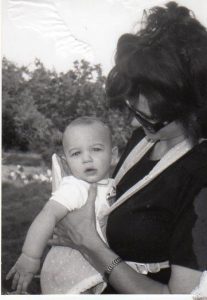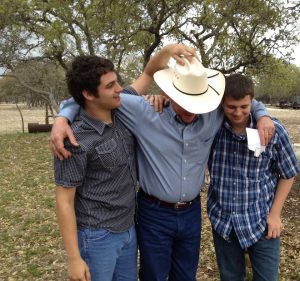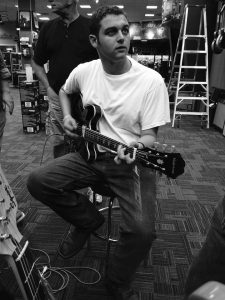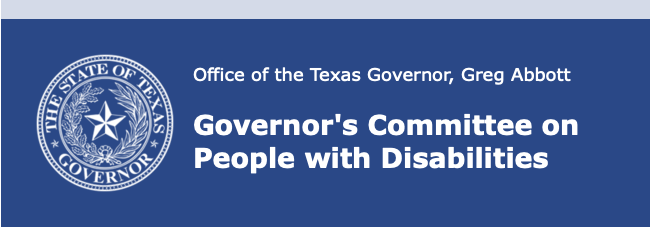Meet Charlie Allen

While growing up as the sibling of someone with autism may progress without a hitch, many harbor feelings of loneliness and resentment. As someone who falls somewhere in-between the above examples, I offer you my son, Charlie Allen. Not until the writing of this blog has Charlie, our youngest, granted me my long desire to write about him. He is the sibling, the brother to Samuel Allen that few, outside our family’s personal circle, know much about.
About Charlie
Charlie was born in 1997, the younger brother to our firstborn Sam. We had no knowledge of Sam’s Autism at this time so the years for early development were probably typical. Contrast to Sam’s quiet world, Charlie had a robust laugh and twinkle in his eye that set the stage to delight anyone in his presence.
I would rather be closer to my brother with autism than close to fake friends who isolate because of autism. Early on, I knew that wasn’t kind nor the way I wanted to be.
Charlie Allen
Everything changed when Sam began school.
It took four years to diagnose Sam’s autism. Meanwhile Charlie felt the residuals of the strain our family was going through. The dynamics changed and we, as a family, had a multitude of adjustments to make. Not easy on a child so very young. It was a blessing and relief when my husband and I decided I would leave my career to stay home, and since Sam had already started school, it gave alone time for just me and Charlie. We were given the privilege of time, those years were bonding and now I believe instrumental in Charlie’s foundation….and boy did he need one!

By the time Charlie began Kinder, his brother had already made his mark at the public school system where they would ultimately graduate from. Charlie’s quiet yet humorous nature began to emerge. My parents, both now deceased, were his biggest fans/supporters and gave both our sons their time and support that were monumental to both their development. But the Middle school years and beyond became difficult for Charlie. He had developed his own challenges such as fine and gross motor skills (penmanship, tying shoes) that made sports or P.E. painful. His sensory issues where far greater than that of his brothers. Smells, touch and even sight were greatly affected and had to be diagnosed and adjustments that his peers simply didn’t have to think about. The most challenging for Charlie was peer relations. Charlie had a choice, he could choose to play with the 5 or 6 other children in our neighborhood or his brother. This was forced upon him as the others told him so. Calling his brother “retarded” and refusing to include (actually running from them) Sam in any activity tested Charlie’s resolve early on. Charlie chose Sam. For that, he paid the price but learned to walk alone. We watched as Charlie began to befriend those with disabilities or outcasts as if a shield to protect the person. This is the quiet yet powerful strength of Charlie.
School Years

I think Charlie found music as his escape. For him, this has been his release…first of anger (hard rock days) and then various genres that lighten paralleling his life. His Dad plays guitar as did his Do-Dad (grand-father) and he delighted in playing with both! This gave Charlie an audience. Too shy to play in large groups, Charlie has thrilled at smaller gatherings. He can master any rock song on his electric or delight country fans with a spot-on Johnny Cash! He can’t read music but can replicate any song after hearing it. For fun he occasionally plays the banjo and even Jerry Lee on piano. He is gifted!
The Fathers Role
My husband is a great father. This has been instrumental in both our sons development. Herb has a quiet strength and his skill as a carpenter offered Charlie an alternative to occupy weekends. Together, Herb, Sam and Charlie built a house together on a plot of land in the country. They learned teamwork and the value of hard work in a different way than typical high school sports. It worked. Together they enjoyed starry nights, bonfires and raising the walls of what their hands had built. Finding something you can do together (not everyone is a carpenter) is instrumental. Occupy their time when no one else will.
Becoming His Own Man
Today, Charlie is 27 years old. He has overcome the shadows and quietly stepped into manhood. He works as a Front End/Customer Services Manager for Hobby Lobby and looks forward to growing with a company that serves. He is kind, Godly and delights in his brother’s company. He notices those who are outcasts and aids them quietly. He stands firm and doesn’t tolerate bullies, rightfully so. To end (and I’m a proud Mom so I could go on and on) this blog I would like to share an unexpected outcome that brings unexpected joy. Less than a year ago, one of those neighborhood childhood bullies approached Charlie and asked for about an hour of his time. Charlie accepted and they met. He asked Charlie for forgiveness for what he and his family had perpetrated on ours. Especially on Charlie as he took the unpopular path of defending his brother. It made an impression. Quite an impression. Charlie forgave and today they meet on occasion and have become friends. This is why I wanted so badly to tell the story of our Charlie. He allowed me permission (for the first time) so I jumped on it!
Charlie has helped me in so many ways. He has stood up for me many times during the middle school years when bullies were rampant. In addition, he has taught me to project that same kindness for the underdog. He is an excellent brother and I couldn’t ask for a better sibling.
Samuel Allen
An Open Discussion: Growing Up with an Autistic Brother
Below is a Q & A with Charlie and after that, we offer you expert advice, several resources and checklists for your journey as the”sibling”.
Q & A with Charlie
How does feel to have a brother with Autism? It doesn’t feel any different than having a neurotypical brother. I don’t know any other way. I see Sam as my brother period.
What have been the challenges as you went through school age years together? Isolation from peers mainly. I was known as “the brother of the ‘weird/different one”. One example: in our neighborhood when other kids were outside playing, they would say I couldn’t play with them because my brother was retarded. That hurt. While it hurt, it made me become closer to my brother. I would rather be closer to my brother with autism than close to fake friends who isolate because of autism. Early on, I knew that wasn’t kind nor the way I wanted to be.

How did you handle the isolation? I turned to music. Specifically guitar. First it was electric. I let my emotions out on the electric guitar. Early on, I had anger due to my brothers bullies so I played hard rock music. Think Ozzy Osborne’s guitarist Randy Rhoads. Later, I found a love of acoustic guitar and became inspired by the music of Johnny Cash. The music truly helped me cope with the isolation from my peers, now I just enjoy playing.
What, if any, challenges did you inherit? Fine and gross motor skills and some sensory challenges affected me especially when I was young. I remember receiving training during my late elementary years, it helped with penmanship and other motor skills challenges such as tying my shoe and holding a pencil correctly.
Have you ever resented your role as ‘the sibling’? At the start, yes, because I couldn’t cope with the idea that my brother had autism. We didn’t learn of his diagnosis until he was 4th grade. As the years passed, I understood what it mean’t to have autism, it is not a death sentence. He is thriving and after all, he is my brother, and I love him for who he is.
Having your family in the spotlight for many years, for the documentary Coping to Excelling, then Aspergers101 and now with the passage of the Samuel Allen Law, how has that attention affected you? In the earlier years, I resented it because Sam had the spotlight. But as the years passed I became proud of him in what he has done letting that resentment go. I now see all the good it has done for my brother and all the people he has served and helped by our family’s example.
You’ve chosen to remain out of the spotlight, why after all these years agree to an interview? I never cared for attention on me is the truth of it. It makes me too anxious. I am much like my Dad in that way and want to be supportive without the attention on me specifically. I do like to take part in ways people don’t know about such as helping my Mom set up for conferences, video tape segments for Aspergers101 blogs and packing/mailing brochures & posters for Driving with Autism initiative. This is what I enjoy doing as I see it helps others like my brother.
What advice would you give to a parent who has a child diagnosed with autism and also neurotypical siblings? Don’t neglect the sibling. Include both children. A perfect example is when our family (the four of us) built a house together. My Dad is a carpenter and he used his skills to teach us such valuable life lessons as teamwork, togetherness and inclusion as we did it as a family. Sometimes, when other kids were at soccer games or Friday night parties, my parents hosted fun times at our cabin in the country. In other words, find a project, an interest or simply include the sibling in conversations. Just don’t neglect any of your children.
What advice would you give to a sibling who just found out their brother or sister has autism? Don’t feel like you are an alien or weird, you are normal like everyone else. sometimes people feel like they are a freak cause that is what society (bullies) tells them. I think of the iron giant “you are who you choose to be” You don’t have to fit in cookie cutter if the cool kids outcast you… be you…stick to your family stick to your sibling.
Friends may come and go but your sibling will always be there.
Charlie Allen
How have you helped your brother? I would say mainly socially. I helped him throughout the years learn social skills such as walking with arms down (swing arms with opposite legs), basic wardrobe choices, greeting people, fitting in at school and basically behaviors/manners in public. It has worked well as Sam has mostly respected my help. We have disagreed many times but we have also laughed and I’ve learned to enjoy what Sam is able to offer as a sibling.
Sources of Stress for Siblings
While some siblings survive just fine or even thrive under their brother or sister’s Autism diagnosis, others do not. The Autism Society of America offers a list of some stressors siblings may face living alongside their sister or brother diagnosed with Autism. Not all siblings will experience these stressful issues, but here are some to be aware of:
- Embarrassment around peers; jealousy regarding amount of time parents spend with their brother/sister
- Frustration over not being able to engage or get a response from their brother/sister
- Being the target of aggressive behaviors
- Trying to make up for the deficits of their brother/sister
- Concern regarding their parents’ stress and grief
- Concern over their role in future caregiving
Be Cognizant of Hidden Comorbidities
Genetics reveal that the siblings of autistic children are more likely than siblings of children without autism, to be withdrawn and to have poor social skills. They also fare worse socially and emotionally, by various measures, than do siblings of children with intellectual disability or other forms of developmental delay. The findings suggest that siblings of autistic children are at risk of secondary conditions or traits associated with autism, but not core features of autism, these are called comorbid conditions and include: ADHD, ADD, Sensory, Anxiety, OCD, Fine & Gross Motors Skill Issues and even more aggressive comorbidities such as bi-polar disorder and manic-depressive.
The Importance of Treatment(s)
It is important to recognize and treat these challenges as often they may be overlooked due to the intense focus on the child with autism. Charlie, though not diagnosed with Autism, was greatly challenged with anxiety, fine and gross motor skills and sensory issues. Each comorbid were essential to address for his success. While these diagnosis were obtained from the medical community, the training came from public school programs and from home. I suggest learn all you can, read and apply. Again and again until the right combination frees your child from the challenges or barricades each comorbid may bring.
Five Tips for Brothers and Sisters
As a result of her work with many families who deal so gracefully with the challenges of autism, family therapist Kathryn Smerling, Ph.D., offers five tips for siblings, that originally appeared in the Autism Speaks 100 Day Kit:
1. Remember that you are not alone! Every family is confronted with life’s challenges… and yes, autism is challenging…but, if you look closely, nearly everyone has something difficult to face in their families.
2. Be proud of your brother or sister. Learn to talk about autism and be open and comfortable describing the disorder to others. If you are comfortable with the topic…they will be comfortable too. If you are embarrassed by your brother or sister, your friends will sense this and it will make it awkward for them. If you talk openly to your friends about autism, they will become comfortable. But, like everyone else, sometimes you will love your brother or sister and sometimes you may not like him or her. It’s okay to feel your feelings. And often it’s easier when you have a professional counselor to help you understand them – someone special who is here just for you! Love your brother or sister the way he or she is!
3. While it is okay to be sad that you have a brother or sister affected by autism, it doesn’t help to be upset and angry for extended periods of time. Your anger doesn’t change the situation; it only makes you unhappier. Remember your Mom and Dad may have those feelings too.
4. Spend time with your parents alone. Doing things together as a family with and without your brother or sister strengthens your family bond. It’s okay for you to want alone time. Having a family member with autism can often be very timeconsuming and attention-grabbing. You need to feel important too. Remember, even if your brother or sister didn’t have autism, you would still need alone time with Mom and Dad.
5. Find an activity you can do with your brother or sister. You will find it rewarding to connect with your brother or sister, even if it is just putting a simple puzzle together. No matter how impaired he or she may be, doing something together creates a closeness. Your brother or sister will look forward to these shared activities and greet you with a special smile.
Adult Siblings
Being the brother or sister of a person with autism does not end with childhood. This is a lifetime relationship that matures and grows over the years. The concerns of an adult sibling will be different from those of children. For the young adult, questions may focus on his/her own plans to have children and be concerned about whether there is a genetic component of their sibling’s autism. In some cases, young adults may also feel a keen sense of responsibility for their brother or sister with autism that makes it difficult for them to leave home and begin an independent life.
Begin a Discussion
It is important that parents discuss with their adult children the expectations they have in caring for the person with autism, as well as reassuring them about the legitimacy of assuming their own role as adults.
The questions of the role of the adult child become most acute as parents age and begin to anticipate the point when they will no longer be able to continue to care for their child with autism. If the person with autism is not already living outside of the home, this may be a time when placement in a group home or supervised apartment becomes important. In families where such care is necessary, adult children and parents must together address the question of who will assume guardianship of the person with autism when the parents die.
It is not easy for any of us to talk about our own death, and both you and your child may shy away from the conversation. Nonetheless, your adult children need to understand the financial plans you have made, the care arrangements in place, and your own expectations for them. Having these difficult conversations will ultimately be a gift to your adult children who will know they can honor your wishes.
In Texas, the Governors committee on People with Disabilities recently introduced a new program supporting adult siblings. It is titled the Texas Sibling Network. Below is that announcement along with many resources.

Introducing the Texas Sibling Network
The Texas Sibling Network (TSN) is a peer-run community for adult siblings of people with disabilities. TSN provides support and resources, as well as opportunities for siblings to learn advocacy and leadership skills. TSN is the state chapter of the national Sibling Leadership Network and is housed at the Texas Center for Disability Studies (TCDS); local chapters have opened in Austin, Houston, the Permian Basin, Lubbock, and DFW with plans to expand and create multiple chapters throughout Texas. Anyone interested in opening a chapter in their city should contact Colleen Williams for more information. TSN provides an excellent opportunity to get involved and help support siblings in leading an inclusive, self-determined life.
Resources Available
TSN has a number of educational resources available on their Facebook, including videos on supported decision making and the Texas Technology Access Program. The Austin-area chapter hosts Sibshops, which are designed for siblings aged 8-12. The last Sibshop of the year will be held on December 8th from 2-5pm, and sign-ups are now open.
Upcoming Events In Texas
November 1-3 | Austin | Pandora Life Outside the Box
November 7 | Austin | Executive Functioning Skills: Self Determination and Organization
November 7 | Seguin | RJ Mitte: Actor & Inclusion Activist
November 8 | Palestine | East Texas Transition Conference
November 9 | Alvin | Thinking Ahead Resource Fair and Conference
November 16 | Arlington | Improving Health and Wellness for Individuals with IDD
November 20 | Austin | Disability Community Night @ The Thinkery
Lastly, as you’ve heard the saying by Dr. Stephen Shore, “If you’ve met one person with autism, you’ve met one person with autism.” Well, the same applies to the sibling. Listen and observe the potential needs of the sibling(s), both emotional and physical. They may have been the rock in your family all along and none of these resources are necessary. However, if you do feel an unsettling imbalance in your family due to an autistic child and sibling relationship(s), consider uncovering the often hidden obstacle of an inherited co-morbid. Or simply adjust your mind’s schedule to include, support and enjoy a relationship that has been there just waiting!
It has seemed a lifetime ago that we received the Autism diagnosis for our oldest son Samuel. I realize that it literally has been a lifetime for Charlie. As Charlie prepares for launch, I know the world will be richer because of him. His heart, compassion and experience of brothering a sibling with a “disability” is rare in someone so young. His shoulders are broad and his heart is large. We need more people like Charlie in the world as he lives awareness for people who are different. We raised one son with Autism and we raised another son with Autism. Same phrase, two very different meanings. We hope these suggestions are beneficial to your parenting journey.
by: Jennifer Allen
A graduate of Abilene Christian University, Jennifer had a long career in TV Broadcasting. Upon learning her oldest son Sam had a form of Autism called Asperger’s Syndrome, she left her career and became a full-time mother to both of her sons. Jennifer elicited the participation of her family and together they produced several independent programs including a children’s animated series titled Ameriquest Kids, as well as a documentary and book titled, Coping to Excelling: Solutions for School-age Children Diagnosed with High-Functioning Autism or Aspergers Syndrome. She formed the nonprofit Asperger101 to provide on-going free resources related to ASD at Aspergers101.com and has implemented the Texas Driving with Disability Program and continues to grow the statewide initiative today. She and her husband have recently retired to their property in the Texas Hill Country.



Yes indeed! Charlie you do have broad shoulders. Only you know how heavy the load has been from time to time. At a very young age you knew the importance of being a supportive sib. And you have immerged as a butterfly does. You have beautiful talents. I love this blog. And I love and admire you little brother. HUGS from Curt
Here at Wilderness Oak we had the PERFECT opportunity to get to know all of you… the Wilderness loves the Allen family! Y’all are just the most kind people and we are all blessed (and better) for knowing each of you! Thank you for sharing!